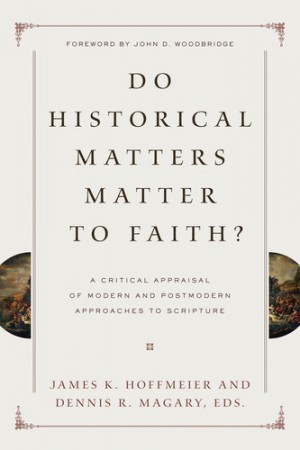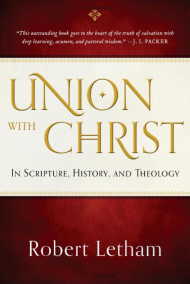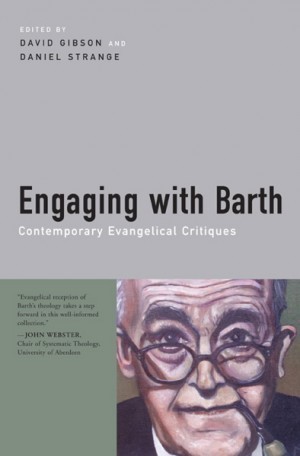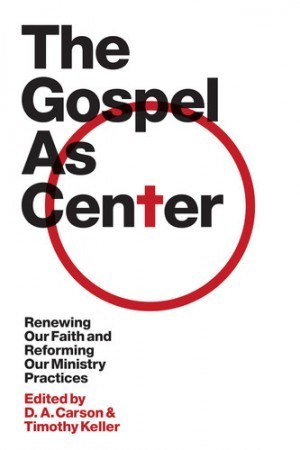Justin Taylor's Blog, page 230
March 9, 2012
Wise Words on Good and Bad Tweeting
@tonyreinke interviews @rayortlund. Here's an exchange:
In your forthcoming commentary on Proverbs you write, "Twitter and blogs and emails would be cleared of much conflict if we humbled our opinions before Christ. What are we here for, really? What does God want to be stirred up in our hearts? He says, stir one another up to love and good deeds (Hebrews 10:24)." Unpack that for a moment. What, in your mind, is the effect of a failed tweet? What is the intended effect of a successful tweet?
A failed tweet displays Self.
A successful tweet displays Christ.
Who cares about the details of my daily life? I hardly care myself.
But I think we can all agree on this: we must decrease, but he must increase.
What I aim at in using the media is another person being able to click in and click out quickly, with maximum benefit to their souls.
Everyone is so busy. But everyone matters.
I want to ask little of them, and add much to them.
I am there to serve, not to demand or impress, by giving them more of Jesus.
Three Misnomers on the Catholic Mass
As a "mystery," the Catholic Mass is by definition beyond human comprehension; yet, when Protestants explain what happens in the Mass, we often get it wrong, propagating misnomers that directly contradict the explicit teaching of the Catholic Church. Here are the big three. If effectiveness in gospel renewal is related to upholding truth and avoiding straw men, these lessons should be noted.
It has been said that it is a woman's prerogative to change her mind, and it's a theologians prerogative to make distinctions. It is how seminaries train us; it is the currency with which we trade. Among theologians, few excel in formulating and articulating these subtleties as much as our Catholic friends, and the mystery of the Mass is a place where this tendency is especially observed. Speaking to the issue intelligently and persuasively requires us to understand the following categories and terms.
Here are the three misunderstandings:
Catholics teach that Christ is physically present in the Mass.
Catholics teach that Christ is re-sacrificed at the Mass.
Catholics teach that Christ dies at the Mass.
You can read the whole thing here.
Do Historical Matters Matter to Faith?
 Crossway has just published a major new collection of essays from an international team of top-flight scholars on the historicity of Scripture and why it matters to faith: Do Historical Matters Matter to Faith? A Critical Appraisal of Modern and Postmodern Approaches to Scripture, edited by James K. Hoffmeier and Dennis R. Magary.
Crossway has just published a major new collection of essays from an international team of top-flight scholars on the historicity of Scripture and why it matters to faith: Do Historical Matters Matter to Faith? A Critical Appraisal of Modern and Postmodern Approaches to Scripture, edited by James K. Hoffmeier and Dennis R. Magary.
You can read the table of contents and the commendations below:
Foreword by John Woodbridge
Part 1: Biblical, Systematic, and Historical Theology:
1. Thomas H. McCall, "Religious Epistemology, Theological Interpretation of Scripture, and Critical Biblical Scholarship: A Theologian's Reflections"
2. Graham A. Cole, "The Peril of a 'Historyless' Systematic Theology"
3. Mark D. Thompson, "The Divine Investment in Truth: Toward a Theological Account of Biblical Inerrancy"
4. James K. Hoffmeier, "'These Things Happened': Why a Historical Exodus Is Essential for Theology"
5. Michael A. G. Haykin ,"Fundamentum et Columnam Fidei Nostrae": Irenaeus on the Perfect and Saving Nature of the Scriptures"
Part 2: Old Testament and Issues of History, Authenticity, and Authority
6. Richard E. Averbeck, "Pentateuchal Criticism and the Priestly Torah"
7. Robert B. Chisholm Jr., "Old Testament Source Criticism: Some Methodological Miscues"
8. Robert D. Bergen, "Word Distribution as an Indicator Authorial Intention: A Study of Gen. 1:1-2:3″
9. John W. Hilber, "The Culture of Prophecy and Writing in the Ancient Near East"
10. Richard L. Schultz , "Isaiah, Isaiahs, and Current Scholarship"
11. Alan Millard, "Daniel in Babylon: An Accurate Record?"
12. Willem A. VanGemeren & Jason Stanghalle, "A Critical-Realistic Reading of Psalms Titles: Authenticity, Inspiration and Evangelicals"
13. Jens Bruun Kofoed, "The Old Testament as Cultural Memory"
Part 3: New Testament and Issues of History, Authenticity, and Authority
14. Robert W. Yarborugh, "God's Word in Human Words: Form-Critical Reflections"
15. Craig L. Blomberg, "A Constructive Traditional Response to New Testament Criticism"
16. Darrell L. Bock, "Precision and Accuracy: Making Distinctions in the Cultural Context that Give Us Pause in Pitting Gospels Against Other"
17. Eckhard J. Schnabel, "Paul, Timothy, and Titus: The Assumption of a Pseudonymous Author and of Pseudonymous Recipients in the Light of Literary, Theological, and Historical Evidence"
18. Thomas W. Davis, "Saint Paul on Cyprus: The Transformation of an Apostle"
Part 4: The Old Testament and Archaeology
19. John M. Monson, "Enter Joshua: The Mother of Current Biblical Debates"
20. Richard S. Hess, "Yahweh's 'Wife' and Belief in One God in the Old Testament"
21. Michael G. Hasel, "New Excavations at Khirbet Qeiyafa and the Early History of Judah"
22. Steven M. Ortiz, "The Archaeology of David and Solomon: Method or Madness?"
Here are a few of the endorsements:
"Standing athwart the tide of strident voices currently demanding that we abandon confidence in the truthfulness and reliability of the Bible, the chapters in this volume constitute a defense of historic Christian confessionalism on the nature of Scripture. Mercifully, however, they are not mere regurgitations of past positions. Rather, they are informed, competent, and sometimes creative contributions that urgently deserve the widest circulation. In months and years to come, I shall repeatedly refer students and pastors to this collection."
—D. A. Carson, Research Professor of New Testament, Trinity Evangelical Divinity School
"Few Christian convictions are of as pervasive importance as the absolute perfection of Scripture—and few convictions fall under more perennial criticism. Hence the need for this volume, which seeks to defend the evangelical doctrine of biblical inerrancy against scholars who argue that in accommodating his truth to human understanding, God has made his Word susceptible to error. Here James Hoffmeier, Dennis Magary, and a broad range of learned colleagues take seriously the self-witness of Scripture and respond to some of the latest, hardest objections to inerrancy by providing clear, comprehensive, persuasive, and charitable answers. Do Historical Matters Matter to Faith? is an invaluable resource for any student of Scripture who doubts the doctrine of inerrancy or has serious questions about the historical reliability of the Bible."
—Philip Graham Ryken, President, Wheaton College
"Whether in a university open forum or in the church, I am consistently asked about the trustworthiness and authority of Scripture. I am therefore delighted that the authors have engaged the critics' challenge as well as the Bible afresh and met the arguments head-on with insightful scholarship and the historicity of Scripture. I commend this unique and timely volume and believe it will be an important work for decades to come."
—Ravi Zacharias, Founder and President, Ravi Zacharias International Ministries; author, Jesus Among Other Gods
"To scholars unconvinced of the classical Christian doctrine of Holy Scripture, Do Historical Matters Matter to Faith? offers a challenge both substantive in its argumentation and respectful in its tone. To scholars convinced of this doctrine, this volume models how to advance the argument on a multidisciplinary, evidentialist basis. We owe the editors and authors a debt of gratitude."
—Raymond C. Ortlund Jr., Lead Pastor, Immanuel Church, Nashville, Tennessee
"This is a book that has been sorely needed. The Bible has long been under attack from those outside evangelical faith, and now more recently from those supposedly inside. Here in one volume the questions are addressed in a comprehensive way, including theological, historical-critical, and archaeological issues. Written with an irenic tone—and yet confronting the questions directly—this book will surely take a prominent place on the shelves of all those who love the Bible and look for solid answers to give to its detractors. The editors are to be commended for bringing the book to fruition and for their breadth of vision in organizing it."
—John Oswalt , Distinguished Professor of Old Testament, Asbury Theological Seminary
"James Hoffmeier and Dennis Magary have assembled a first-rate team of evangelical writers to join them in exploring the historical issues related to the interpretation of Holy Scripture and the formation of Christian theology. Each chapter makes a significant contribution to this comprehensive and focused volume—which both affirms and defends the complete truthfulness and full authority of the Bible while fully engaging the questions and challenges raised by modern and postmodern approaches to biblical interpretation. Informative and winsome, this impressive work will be immensely helpful for a generation of students, pastors, and scholars alike."
—David S. Dockery, President, Union University
"Here is a collection of first-rate essays written by an international team of scholars, each affirming what must be called the historic Christian view of Holy Scripture—that the Bible, God's Word written, is trustworthy and totally true in all that it affirms. Rather than simply rehearsing platitudes of the past, this volume advances the argument in the light of current debate and recent challenges. A magisterial undertaking to be reckoned with."
—Timothy George, Founding Dean, Beeson Divinity School; General Editor, Reformation Commentary on Scripture
"In recent decades evangelicals have felt increasing pressure to abandon their high views of Scripture—a pressure that comes not only from scholars outside their circles, but also from some inside. This volume represents a welcome response to both, but especially to the latter. The contributors represent evangelical scholarship at its best as they address critical challenges with clarity and conviction, even while keeping their tone civil and charitable. This book will serve as a handy reference tool for students, pastors, and scholars who need a fair and responsible treatment of the evidence and clear declaration of their conclusions."
—Daniel I. Block, Gunther H. Knoedler Professor of Old Testament, Wheaton College; author, The Gospel according to Moses: Theological and Ethical Reflections on the Book of Deuteronomy
"To the credit of its editors and authors, this book is not so much a reaction to the recent statements of Peter Enns and Kenton Sparks on biblical inerrancy, which called it forth, but an apologetic response to their works. To that effect, it is not a monument to the doctrine, but rather an advancement of its method and intent."
—C. Hassell Bullock, Pastor, Warren Park Presbyterian Church, Cicero, Illinois; Franklin S. Dyrness Professor of Biblical Studies Emeritus, Wheaton College
"This is a timely work, both in the sense that it addresses an emerging issue—a loss of confidence in the historicity of the Bible—and in the sense that its authors are conversant in the current state of the debate. The topics discussed include all the essentials: the foundational theological issues, the major source-critical and historical-critical questions, and matters arising from archaeology. This book will be a valuable resource for both scholars and students."
—Duane A. Garrett, Professor of Old Testament, The Southern Baptist Theological Seminary; author, A Modern Grammar for Biblical Hebrew and Amos: A Handbook on the Hebrew Text
"This is a brilliant response to evangelical skeptics such as Peter Enns and Kenton Sparks, and, in a broader sense, also to mainstream skeptics such as Philip Davies, Keith Whitelam, or Robert Coote. The list of contributors is a stellar lineup of first-rate scholars in their disciplines who defend the traditional, orthodox view of Scripture as historically reliable in sophisticated and convincing ways. Even those who might remain unconvinced of the book's main argument will have to rethink their positions. I highly recommend this work."
—David M. Howard Jr., Professor of Old Testament, Bethel University, St. Paul, Minnesota
March 8, 2012
What Difference Does Union with Christ Make?
 Credo Magazine recently interviewed Robert Letham on his book Union with Christ.
Credo Magazine recently interviewed Robert Letham on his book Union with Christ.
The final question is on how union with Christ should affect the church's piety:
It should dramatically and deeply impact it. I can draw attention to three ways.
First, in the Lords' Supper we do not have communion with the benefits of Christ—as if we were united to the doctrine of justification—but with Christ himself. Christ's benefits flow from that.
Second, in relation to assurance, we are not acceptable to God on the basis of our state of mind or heart at any given moment, not that that is unimportant. Since we are united to Christ, the Father regards us exactly as he does his Son and has done from eternity! That is why we can call on him as "Our Father . . ."
Third, in relation to death. In union with us, God the Son has experienced human death and burial according to his flesh. Following this, in union with him, we will share his resurrection. Before I forget to say so, Christ's resurrection and ours are the same reality, separated by indefinite time; the resurrection has already begun with his in AD 30, ours following. If you read 1 Corinthians 15:12-49 carefully you will see this.
New 9Marks e-Journal on Conversion
The latest 9Marks e-Journal, a wonderful resource, is now online.
Here are some recommendations from editor Jonathan Leeman (who writes on the corporate dimension of conversion):
Start with Jared Wilson's reflections on the beauty of the doctrine and Owen Strachan's historical observations. Thomas Schreiner and Steve Wellum also help us to get our doctrine right. This is critical, friends. Owen's piece especially will help you to see why, as will Bobby Jamieson's instructive book review on Revival and Revivalism.
Once you've got the doctrine right, you need to think about how it connects to the life of the church. For that purpose we've called in Jeramie Rinne, Michael Lawrence, Mike McKinley, and Shai Linne. Zach Schlegel's review of Finally Alive might also surprise you with its pastoral insight.
March 7, 2012
Vanhoozer on Developing a Sanctified Imagination
From an interview where I asked Kevin Vanhoozer about the important of a sanctified imagination and how to develop it:
First, I find that the imagination is a vital ingredient in my sanctification. I need to keep the big biblical picture (creation-fall-redemption-consummation) in mind as I attempt to live day by day, minute by minute, as a follower of Jesus Christ who desires above all to have one's thought and life correspond to the gospel. To do that, I have to keep the gospel story (together with its presuppositions and implications) in mind, and I have to connect my story to that of Jesus. That requires imagination.
Second, the imagination is "sanctified" because it is "set apart" for the purpose of making just these kinds of connections.
There are vain imaginings, of course. These tend to be the ones that encourage us to see our lives as part of some other picture where God is either absent or other than the Father of Jesus Christ.
As for practical helps for cultivating a sanctified imagination, let me mention two.
First, reading. Reading is the way we learn to inhabit the world. Not the natural world, but the cultural world: the world of meaning. Martha Nussbaum has some wonderful essays in her book Love's Knowledge on how the novels of Henry James train us to attend to the moral significance of the details of human life.
If we can learn moral sensitivity from Henry James, how much more can Christians learn, say, about speech ethics from the epistle of James, not to mention all the Old Testament narratives, Jesus' parables, and the Gospels themselves.
My concern is that many Evangelicals are suffering from malnourished imaginations. This impedes their ability to live coherently in the world—that is, according to a meaningful metanarrative. We want to believe the Bible, but we are unable to see our world in biblical terms. . . . That leads to a fatal disconnect between our belief-system and our behavior, our faith and our life. If faith's influence is waning, as two-thirds of Americans now think, I believe that it is largely because of a failure of the evangelical imagination.
Reading, then, is a kind of strength-training that flexes the muscles of our imagination. Those who read widely are often those who are able to employ metaphors that connect ordinary life to the wonderful real world of the Bible.
The second way I exercise my biblically rooted, theologically formed imagination is by viewing myself as part of the ongoing action that the Bible recounts. My task as a disciple of Jesus Christ is to continue the theodramatic action—the plot of salvation history—in a manner that is consistent with what the Father, Son, and Spirit have already done and are still doing. To some extent, the theologian is a worker in dramatic fittingness whose task is to help us understand the drama of redemption, both theoretically and practically. We need practical understanding of the gospel so that we can speak and act faithful and orthodox lines in new cultural scenes. It is by seeking to live by the word in the power of the Spirit that our imaginations become sanctified. I need a sanctified imagination as I seek each day to improvise my life to the glory of God.
8 Myths about China
 Joann Pitmman lists and explains 8 myths about China today:
Joann Pitmman lists and explains 8 myths about China today:
China is a communist country.
China is a capitalist country.
China is a wealthy, modern country.
China is a poor, backward country.
People live under severe oppression.
People live in freedom.
Religious persecution is the normal experience for believers of all faiths.
There is religious freedom.
You can read the whole thing here.
Why Some Evangelicals Are Attracted to Karl Barth
 A couple of years ago David Gibson and Daniel Strange edited Engaging with Barth: Contempoary Evangelical Critiques, which David Wells says contains "some of the best essays I have read on Barth."
A couple of years ago David Gibson and Daniel Strange edited Engaging with Barth: Contempoary Evangelical Critiques, which David Wells says contains "some of the best essays I have read on Barth."
An interesting exchange from an interview that Dr. Gibson did with Guy Davies.
GD: Why do you think that Barth's theology is proving attractive for evangelicals at this time?
DG: It's probably even harder to generalise here, and I don't want to steal too much of Carl Trueman's thunder as he comments on this in his Foreword.
There's the obvious attraction of Barth's desire to be creedally orthodox in a way which is just absent in so much of modern theology.
Allied to this there's probably something of 'the enemy of my enemy is my friend' approach which sees in Barth both a kindred spirit and superb resource for responding to theological liberalism and cultural hostility to the gospel. Barth is passionate, often quite moving, and he writes about God and Christ and the gospel in deep and profound ways. There's plenty more things which could be said like this.
At the same time, a complete answer would have to engage with the fact that Barth's attractiveness to evangelicals is hardly explicable without reference to the increasing fragmentation and diversity within worldwide evangelicalism. When we talk about evangelical theology and Barth, one of the least addressed questions is: what do we mean by 'evangelical'? To give just one example of the problem, in some quarters today a distinction might be made between being 'evangelical', and being 'an evangelical'. The former is someone committed to the gospel; the second is someone committed to the gospel and its understanding within one particular tribe within a particular cultural world, and so on. The former might be seen as biblical and Christ-centred; the latter might be seen as parochial, sectarian, or even as a relative (modernist) new-comer to the theological scene. As a profound gospel thinker, Barth's thought lends itself more easily to those who want to describe themselves as 'evangelical', but not as 'an evangelical' – and I think that's because this distinction recognises that there are aspects of Barth's thought that are at odds with how historic confessional evangelicalism has understood the gospel and its various entailments. Where 'evangelical' is understood with some of these blurred edges, never mind the massive diversity that exists within the 'evangelicalism' tribe, then the answers as to why Barth is attractive to 'evangelicals' depends on where we are along that spectrum. Barth himself was fairly hostile towards conservative evangelicalism as he knew it. Doubtless there were caricatures and misrepresentations on both sides, but it is also probable that underlying the antipathy was the recognition of a fundamental clash on certain theological issues. You could argue that where historic confessional evangelicalism is increasingly attracted to Barth it is because, at least in some areas, we see the issues less clearly than either our predecessors or Barth himself.
March 6, 2012
Carson and Keller: "The Gospel As Center"
 Here is the table of contents for the new book The Gospel As Center:Renewing Our Faith and Reforming Our Ministry Practices,
Here is the table of contents for the new book The Gospel As Center:Renewing Our Faith and Reforming Our Ministry Practices,
"Gospel-Centered Ministry," D. A. Carson and Timothy Keller
"Can We Know (and Tell) the Truth?," Richard D. Phillips
"The Gospel and Scripture: How to Read the Bible," Mike Bullmore
"Creation," Andrew M. Davis
"Sin and the Fall," Reddit Andrews III
"God's Plan," Bryan Chapell
"What Is the Gospel?," Bryan Chapell
"Christ's Redemption, Sandy Willson
"Justification," Philip Graham Ryken
"The Holy Spirit," Kevin DeYoung
"The Kingdom of God," Stephen Um
"The Church: God's New People," Tim Savage
"Baptism and the Lord's Supper," Thabiti Anyabwile and J. Ligon Duncan
"The Restoration of All Things," Sam Storms
You can read the Carson and Keller essay on Gospel-Centered Ministry as a PDF or below:
No One Ever Spoke Like This Man!
Gregory of Nazianzus, the fourth-century Archbishop of Constantinople, on the "admirable conjunction of excellencies" (to use Edwards's language) of the way Jesus interacted with people:
Both these extremes he avoided;
he was sublime in action, lowly in mind;
inaccessible in virtue, most accessible in intercourse;
gentle, free from anger, sympathetic, sweet in words, sweeter in disposition;
angelic in appearance, more angelic in mind;
calm in rebuke, persuasive in praise, without spoiling the good effect of either by excess, but rebuking with the tenderness of a father, praising with the dignity of a ruler, his tenderness was not dissipated, nor his severity sour;
for the one was reasonable, the other prudent, and both truly wise;
his disposition sufficed for the training of his spiritual children, with very little need of words;
his words with very little need of the rod, and his moderate use of the rod with still less for the knife.
—Gregory of Nazianzus, "Oration 21," NPNF 2nd series, 8:271-72 (par. 9).
Justin Taylor's Blog
- Justin Taylor's profile
- 44 followers




